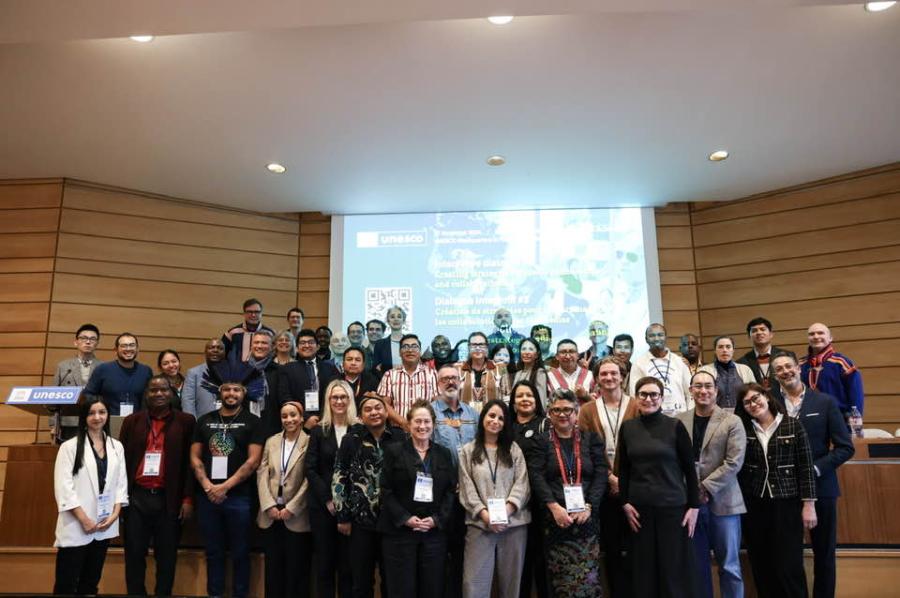Since 1972, Cultural Survival has helped indigenous people and ethnic minorities deal as equals in their encounters with industrial society.
We maintain that cultural difference is inherent in humanity; protecting this diversity enriches our common earth. Yet in the name of development and progress, native peoples and ethnic minorities lose land, natural resources, and control over their lives. The consequences can be disease, destitution, and despair for them - and war and environmental damage for us all. The destruction is not inevitable.
People often assume that indigenous cultures or "small" ethnic minorities are destined to disappear. The result is a tendency to dismiss those concerned about the fate of such societies as romantics trying to hold back history or sentimentalists who minimize the benefits of progress.
Cultural Survival, the organization, does not consider cultural survivals, the concept, to be a matter of clinging to folkways but rather a question of a people's ability to determine its own future. Greed and ignorance, not fate, extinguish traditional societies. A state may dispossess cultures simply because they are weak, tempting targets. Development projects can destroy peoples in the name of distorted notions of progress.
Instead of a choice between poverty and environmental destruction, CS helps indigenous peoples and ethnic minorities design and implement their own culturally sensitive programs. These efforts to defend rights, lands, and cultures offer an alternative to victimization by economic interests and ideological prejudices. Our programs draw their inspiration from the convergence of the crucial needs of the modern world: human rights, the natural environment, and economic development.
CS partnerships with indigenous people and ethnic minorities foster autonomy and local decision-making power, two prerequisites for survival. We insist that these groups must decide themselves what traditions to maintain - and how fast to change others - as they encounter majority cultures and state governments.
CS supports some 50 projects around the world that help native people and ethnic minorities secure human and land rights, build effective organizations, and manage natural resources. For example, CS assist the Ecuador - Colombia Aw Project, a pioneering effort to advance Indian land rights and manage resources in the world's wettest rain forest. Cultural Survival Enterprises has financed a nut-processing plant in Acre, Brazil, that is owned and operated by the Rubber Tappers Cooperative. CS also supports the Afghan Refugee Weavers' Project, which is helping refugees in Pakistan earn money and revive traditional Afghan rug-making methods. And CS helped initiate Sna Jtz'ibajom, a writers' cooperative in southern Mexico that is recovering Mayan oral traditions.
CS resource-management programs enhance the ability of native peoples to secure land rights and manage natural resources. CS funding and technical assistance to small-scale efforts helps them strengthen organizations and enable them to act as models for groups facing common threats.
The Center for Cultural Survival links research to action on behalf on indigenous people as they shape their future and protect their natural resources. The center operates two global information services that bring together indigenous organizations, advocates, and scholars.
CS education and public policy programs underscore the far-reaching relevance of indigenous issues. CS produces the monthly bulletin Action for Cultural Survival, the award-winning and comprehensive cultural Survival Quarterly, and other print and visual educational materials. WE offer workshops and public talks for schools, policy makers, community groups, and the media.
Article copyright Cultural Survival, Inc.


